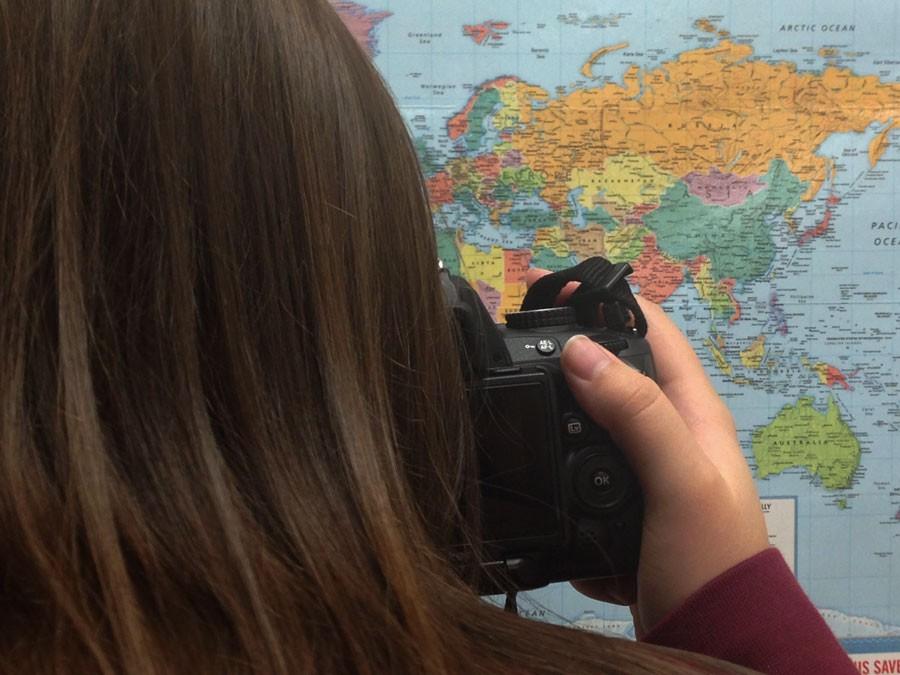RELIGIOUS VIOLENCE INADEQUATELY COVERED GLOBALLY
Religious violence and terrorism are disproportionately covered by major media outlets worldwide.
January 6, 2016
In recent months, the terrorist organization named the Islamic State in Iraq and Syria (ISIS) has been covered on major news outlets virtually every day. They are responsible for thousands of civilian casualties worldwide and follow a meticulously constructed, fundamentalist set of beliefs based on the religion of Islam. However, acts of religious violence and other radicalized religious groups in other areas are rarely or insufficiently reported on, even though the acts they commit are comparable to those of ISIS.
The Islamic extremist group Boko Haram, operative in several countries in Western Africa, has killed well over 6,000 civilians in 2014 alone. The members of this militant organization attack villages, bomb the region, and kill ruthlessly. Although they are increasingly being covered and recognized by western news, ISIS remains, by far, the top focus on the subject of terrorism.
Acts of religious violence executed by other faiths have also been plaguing countries in recent years. In South Asia, namely India, Sri Lanka, and Thailand, Hindu (Hinduism is technically a collective set of beliefs throughout India, but is regarded as one ethnic religion) and Buddhist majorities have persecuted and victimized Muslim minorities in the region. However, this anti-Muslim outlook and violence carried out against them has received little to no attention globally in comparison to such groups as ISIS.
“ISIS, ISIL, and Al-Qaeda have been in the media more than any other group due to the relatively recent attacks of 9/11, Paris and California shootings that have happened. There are many, many more groups that aren’t covered on the media,” says junior Meghana Vonguru.
All instances of religious violence, no matter how seemingly minor or remote, are crimes against humanity characterized by depraved actions—rape, bombings, beatings, and shootings are just a few infamous examples of such exploits. Regardless of background or faith, lives are lost and an area can spiral into disarray. In the war-torn Central African Republic (CAR), Christian and Muslim forces alike have fought without restraint, each killing indiscriminately as the country’s civil war continues to plague and weaken the nation.
AP Human Geography teacher Mrs. Nicole Broder says, “If you’re going to talk about terrorism, you have to discuss the issue all across the board, not just the groups that are the most sensationalized. The ones that really try to be covered on the media […] are the ones that we see and unfortunately, our news media totally fuels the fire as well, so you don’t hear about those smaller groups.
Presently it seems that most of the talk on terrorism and religious violence is centered on ISIS or the Middle East. However, instances of religious violence in other geographical areas, regardless of faith, cannot be ignored. It is not a question of supposed priority or political relevance but of morality. Thousands of men, women and children suffer persecution and discrimination daily, and this is almost surely followed by violence and suffering because of such intolerance.
Fundamentalism and terrorism are not confined to one religion or region, and all faiths have extremists and radicalized followers. Every detrimental act executed by any such radicals, be it in Paris, Syria, India, or the CAR, is a tragedy that must be acknowledged and remembered in the future. If one desires the eradication of terrorism, this desire must be realized by recognizing the word in its global entirety rather than focusing on one religion, group, or area. The degree of violence and amount of innocent lives wasted is only bound to escalate so long as the terrorist sentiment, no matter how seemingly remote or small a following, still exists.
























